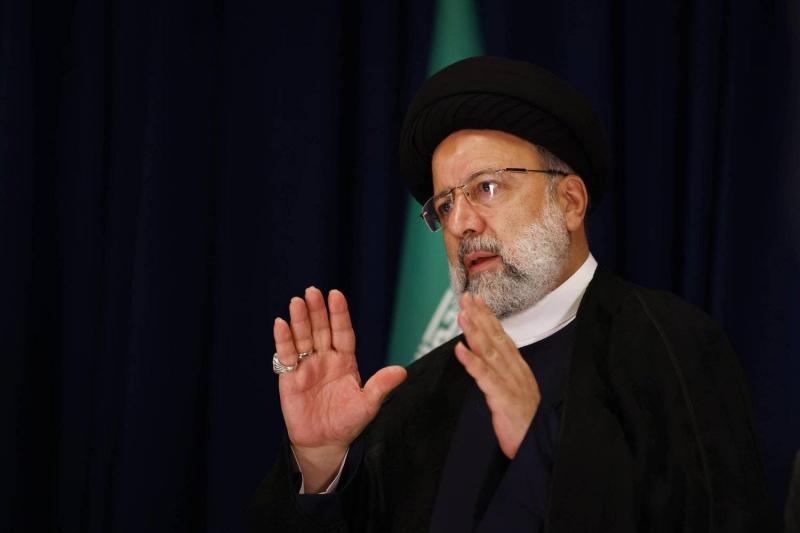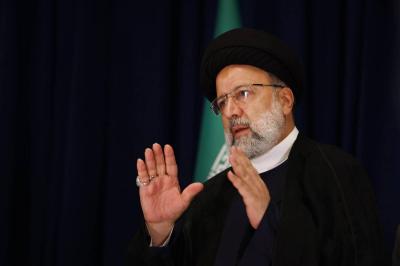Following the announcement of the death of Iranian President Ebrahim Raisi and his companions in a helicopter crash, Supreme Leader Ali Khamenei addressed the Iranian people stating that the president died a martyr along with his associates, and that the state remains strong and steadfast, continuing with its institutions and resilience. It was as if he was suggesting that one chapter has closed to start another, and that he remains the enduring guide for the republic.
It is clear that the Iranian street does not attach any importance to the succession of Ebrahim Raisi to any president of the republic, as the position's powers are limited to managing the daily affairs of the country. Since day one, the president is indebted to those holding the reins of the system and other structures of power that control the nomination process. Consequently, only 23% of Iranians participated in the 2021 presidential elections, as they realized that their desires and aspirations could not be achieved through elections, and it is expected that voter turnout will drop below 20% this time.
The same sentiment prevails among observers of Iranian affairs, who monitor the election of a president primarily to anticipate what impact it may have on Khamenei's succession. One source states that the succession process is the only aspect receiving international attention, while other variables do not significantly affect events and will not occupy substantial space in the media.
Iran's dilemma lies in a system that does not represent generations of youth who have been suffering for decades under the poverty line, which exceeds 47% of the population, with youth unemployment reaching 22.8% and inflation at 45.2%. Raisi was expected to be Khamenei's successor, as Khamenei spent years carefully preparing Raisi; however, his death has created some uncertainty regarding Iran's future. There are speculations that Khamenei may have changed his mind about supporting Raisi just before the helicopter crash and the ensuing death of Raisi and his companions.
Khamenei may want to promote his son Mojtaba as a potential successor. However, while there is no explicit law prohibiting hereditary succession, the political, ideological, and historical context in Iran makes such a move highly controversial, and it is unlikely to be accepted without significant debate.
According to Iranian law, the first vice president assumes the role of interim president, and elections for a new president must be held within 50 days. Thus, Iranian first vice president Mohammad Mokhber has taken on the role of interim president, with Khamenei's approval. Mokhber is known to be hardline, with a strict stance against the United States and Europe, along with his support for "Hamas" in its conflict with Israel.
Mokhber bears significant responsibilities in Iranian foreign relations, including managing relations with Russia; he traveled to Moscow with senior Iranian security officials to sign agreements regarding new arms shipments. Mokhber has close ties with Khamenei, who personally chosen him to head "Setad," a multi-billion dollar financial empire.
The next president in Iran faces numerous challenges. The economy is in dire straits, with inflation skyrocketing. On the international front, Iran is unpopular in the United States, Europe, and many Middle Eastern countries due to its continued support for militias and destabilizing proxies throughout the region.
This is a difficult time for any new politician to assume power or control. However, in Iran, elections do not determine who will be the next president or foreign minister, as those holding the power structure make the final decisions. Presidential candidates in Iran must first be approved by the Guardian Council, which means that popular candidates are often rejected, undermining the will of the Iranian people.
While discussing potential alternatives for the president, it is important to note that Foreign Minister Hossein Amir-Abdollahian was killed and needs to be replaced. Amir-Abdollahian had close ties with the Revolutionary Guard, inherited from his close relationship with General Qassem Soleimani, and is blamed for the end of the nuclear agreement, being the person assigned by Iran to deal with Hamas leader Ismail Haniyeh.
Bagheri Kani, Amir-Abdollahian's deputy for political affairs, has been appointed as interim foreign minister. He is another hardliner opposed to the West.
Overall, given Iran's pivotal role in the Middle East and its growing relations with Russia and China, the new leader will have a significant impact on global affairs. However, it is expected that the most likely candidates for the presidency and foreign ministry, as well as the potential successor to the leader, will continue Iran's current policies. These individuals are not expected to liberate Iranian society or improve relations with the world or with the United States or the West. The time has not yet come, and it will only come after the Iranian regime undergoes what the Syrian regime has experienced.




